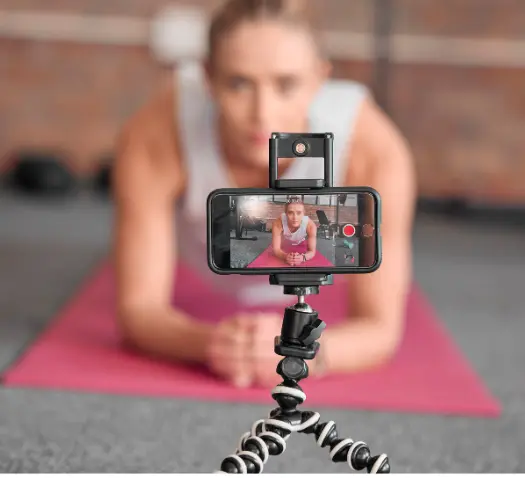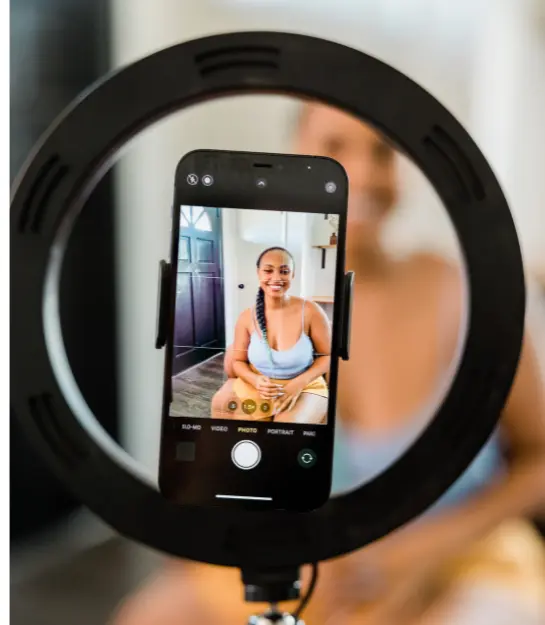Reaching a Social Media Weary Gen Z: Strategies for Fitness Brands

Reaching Gen Z isn’t as simple as posting on TikTok or YouTube and calling it a day. Fitness brands need to be deliberate and strategic about the way they communicate with this young, emerging cohort
Elevation Health is a 1994-founded company that promotes wellness lifestyle management solutions. It offers professional fitness staffing, community engagement platforms, wellness programming, and fitness management options
In today’s digital age, capturing the attention of Gen Z on social media has become a challenging task.
Born between the mid-1990s and the early 2010s, Gen Z is the first generation to grow up entirely in the digital era, making them inherently familiar with social media platforms. However, despite this familiarity, Gen Z is showing signs of social media fatigue. This has led to decreased engagement and a more discerning approach to online content.
For fitness brands looking to connect with this elusive audience, understanding the reasons behind Gen Z’s disengagement from social media is crucial. Moreover, developing tailored strategies to reach and engage with them is essential for brand success.
Reasons for Gen Z’s Disengagement From Social Media
Information Overload: Gen Z is bombarded with a constant stream of information on various social media platforms. This overflow of content often leads to a feeling of overwhelm, causing them to disengage to avoid mental fatigue. A typical Gen Z individual might wake up to dozens of notifications from various social media platforms, including Instagram, Twitter, Snapchat, and TikTok. They may find it overwhelming to keep up with the constant influx of posts, stories, and messages from friends, influencers, and brands. This overload can lead to decision paralysis and mental fatigue, prompting them to disengage from social media to alleviate stress.
Authenticity Over Glamour: Unlike previous generations, Gen Z values authenticity over perfection. They are skeptical of overly curated and staged content commonly found on social media, preferring genuine and relatable experiences. Instead of following heavily edited and polished Instagram influencers, Gen Z is drawn to creators who share raw and authentic content. For instance, they might prefer following a YouTuber who vlogs about their daily life, including both the highs and lows, over a celebrity with a picture-perfect feed. This preference for authenticity extends to brand interactions as well, with Gen Z favoring companies that demonstrate transparency and honesty in their messaging.

Privacy Concerns: Growing up in an era marked by widespread data breaches and privacy scandals, Gen Z is more cautious about sharing personal information online. They are keenly aware of the risks associated with social media and prefer platforms that prioritize user privacy. In light of major data breaches, Gen Z is increasingly cautious about sharing personal information online. They might opt for social media platforms that offer robust privacy settings and encryption features, such as Signal or Telegram, over mainstream platforms like Facebook. Additionally, they may be more inclined to use pseudonyms or restrict their profiles to close friends and family to minimize the risk of identity theft or cyberbullying.
Short Attention Spans: With the rise of platforms like TikTok and Snapchat, Gen Z has developed shorter attention spans, preferring bite-sized, visually engaging content over lengthy posts or videos. Platforms like TikTok and Snapchat have popularized short-form, attention-grabbing content that aligns with Gen Z’s limited attention spans. Instead of scrolling through lengthy blog posts or watching hour-long YouTube videos, they prefer consuming quick, digestible content that can be enjoyed in a matter of seconds or minutes. Memes, GIFs, and viral challenges are prime examples of content that resonates with Gen Z’s short attention spans.
Desire for Offline Connections: Despite being digital natives, Gen Z craves genuine human connections and meaningful offline experiences. They prioritize real-life interactions over virtual ones, seeking a balance between their online and offline Lives. Gen Z recognizes the importance of offline connections and experiences. They might organize meetups with online friends, attend music festivals, or participate in community events to foster real-life connections. Additionally, they may advocate for digital detoxes or screen-free activities like hiking, board game nights, or volunteering to strike a balance between their online and offline lives. This desire for offline connections reflects their longing for authentic human interaction in an increasingly digital world.
Strategies for Fitness Brands To Reach & Engage Gen Z
1. Authentic Storytelling: Fitness brands need to focus on authentic storytelling. They need to share their stories honestly and transparently. Take this a step further by incorporating user-generated content into your storytelling efforts. For example, create a series of videos or blog posts where Gen Z individuals share their personal fitness journeys, struggles, and successes. Highlighting real stories will resonate more deeply with your audience.

2. Utilize Video Content: Fitness brands should experiment with different video formats beyond just workout routines and tutorials. Consider creating behind-the-scenes content showing the making of your products or the stories of your employees. This kind of content can be more engaging and relatable to Gen Z.
3. Collaborate With Influencers: Partnering with influencers who align with your brand values and resonate with your target audience can be an effective way to reach Gen Z. However, it’s important to choose influencers who prioritize authenticity over glamour and who embody a healthy and balanced lifestyle.
4. Leverage User-Generated Content: Encourage your audience to share their fitness journeys and experiences on social media by using hashtags or creating challenges. Reposting and acknowledging user-generated content can help build brand loyalty and foster a sense of community among your Audience.

5. Prioritize Privacy & Security: Fitness brands should prioritize user privacy and security in their messaging and online presence. Communicate the steps you’re taking to protect your customers’ data and offer robust privacy settings on your social media Platforms.
By understanding the reasons behind Gen Z’s social media fatigue and implementing tailored strategies to reach and engage with them, fitness brands can successfully connect with this elusive audience and build long-lasting relationships.



